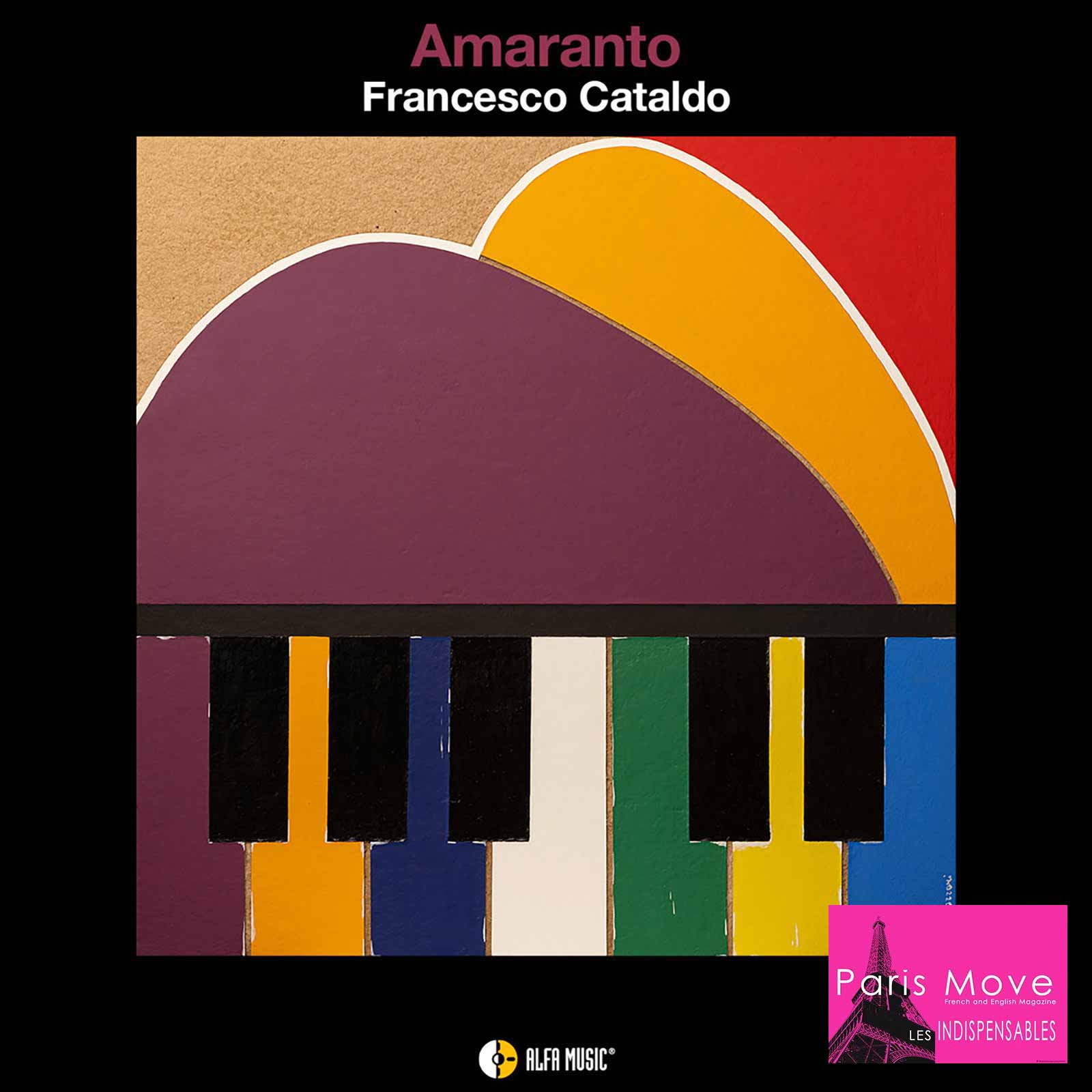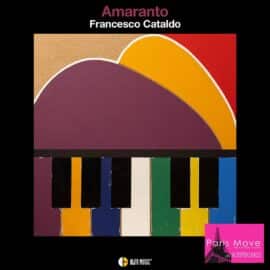| Jazz |

Francesco Cataldo’s Amaranto: A Contemplative Journey That Transcends Border
To call Francesco Cataldo simply one of Italy’s most captivating jazz composers would be a disservice to the depth and global scope of his musical journey. Cataldo is more than a composer—he is a bridge-builder, a quiet architect of sound who delicately threads a cultural dialogue between Europe and the United States. But to truly grasp the essence of his artistry, one must go beyond the resume, the discography, the illustrious collaborations. One must listen—intently, patiently. Only then does the full picture begin to emerge, a picture painted in tones as vivid as they are introspective.
Cataldo’s 2012 release Spaces (Alfa Music) marked a turning point in this transatlantic dialogue. Featuring an ensemble of jazz heavyweights—including bassist Scott Colley, saxophonist David Binney, pianist Salvatore Bonafede, drummer Clarence Penn, and cellist Erik Friedlander—the album was both a declaration of musical maturity and a manifesto of sorts: global in spirit, intimate in execution. Following that, Cataldo took to the road with another star-studded lineup including pianist Kenny Werner, saxophonist Benjamin Koppel, bassist Johannes Weidenmueller, and percussionist John Hadfield—the latter known more recently for his contributions to Céline Bonacina’s 2023 album Fly Fly.
In Amaranto, Cataldo’s most recent offering, the composer returns with a work that is strikingly contemplative, evoking—at moments—the sparse elegance of Erik Satie. And yet, Amaranto diverges from Satie’s world of pale minimalism to embrace something more luminous, more chromatically rich. Cataldo, like many of his European jazz contemporaries, draws from a wellspring that is both classical and deeply regional. His compositions are steeped in Mediterranean colors, yes, but also in literature, in the visual arts, in poetry. In Amaranto, form is not just a vehicle for melody—it becomes the subject itself.
This is music that asks for something rare in today’s hyper-accelerated listening culture: attention. Not background ambiance, but focused engagement. It speaks not to the casual listener, but to those who believe music can—should—exist beyond appearances, beyond surface pleasures.
Years ago, during a rehearsal in Rome, I watched Paolo Conte warming up, his fingers sketching ideas at the piano with the nonchalance of a master. Listening to Amaranto, I’m struck by moments that echo those same fragmented, searching notes. Perhaps the resemblance should come as no surprise. Both men are products of Italy’s sprawling cultural mosaic, and both share an instinctive understanding that birthplace is not just geography—it is narrative. In jazz, a form long since unmoored from its national origins, that narrative finds renewed expression in the voices of artists who, like Cataldo, are unafraid to mine the soil of their own traditions.
That sensibility was also present in Giulia, the 2019 album Cataldo recorded at Forward Studios in Grottaferrata. With pianist Marc Copland, drummer Adam Nussbaum, and bassist Pietro Leveratto, Giulia extended the composer’s lyrical language into a terrain both conversational and cinematic. Released in February 2020, just before the world shuttered in silence, the album captured something elusive—melancholy without resignation, hope without simplification.
With Amaranto, Cataldo narrows his focus and opens his heart. The 2024 solo piano album is arguably his most intimate work to date. But intimacy here does not imply minimalism or austerity. Rather, it reflects a clarity of vision, the willingness to strip the music of adornments and let melody tell the story. There’s a narrative arc at work, though it resists linearity. One hears echoes of the past, fragments of memory, suggestions of journeys taken and interior landscapes visited. The compositions feel timeless, as though they’ve always existed, waiting to be discovered.
Italy, it seems, never stops offering the world its musical treasures—often quietly, almost humbly. Alfa Music, the label behind Amaranto, has long been a wellspring of Italian jazz, quietly placing artists like Cataldo on the world stage. Without even realizing it, listeners across continents have likely already encountered the label’s fingerprint through the many international collaborations it has nurtured.
Amaranto is not just a piano album—it’s a rare artifact, a record of one artist’s refined vision and emotional sincerity. It is a work to be cared for, absorbed slowly, revisited often. And, like all true works of art, it will find new meanings each time the light shifts, each time a new season begins. It is music that returns to you—not with insistence, but with grace—like sunlight slipping quietly through the blinds.
Thierry De Clemensat
Member at Jazz Journalists Association
USA correspondent for Paris-Move and ABS magazine
Editor in chief – Bayou Blue Radio, Bayou Blue News
PARIS-MOVE, May 22nd 2025
Follow PARIS-MOVE on X
::::::::::::::::::::::::
To buy this album
Front cover painted by Stefano Lazzari
F. Cataldo: piano, compositions and arrangements
Tracklist:
1.Prologo 02:07
2.Amaranto 02:45
3.Vito, raccontami 02:36
4.Empty Hallways 02:30
5.Better days 03:06
6.Two Colours 03:03
7.Pictures 03:14
8.Your Silence 05:10
9.Rimas Mood 03:25
10.Nothing by Chance 02:54
11.Our Journey 04:09
12.So Simple 01:27
13.Epilogo 01:15

